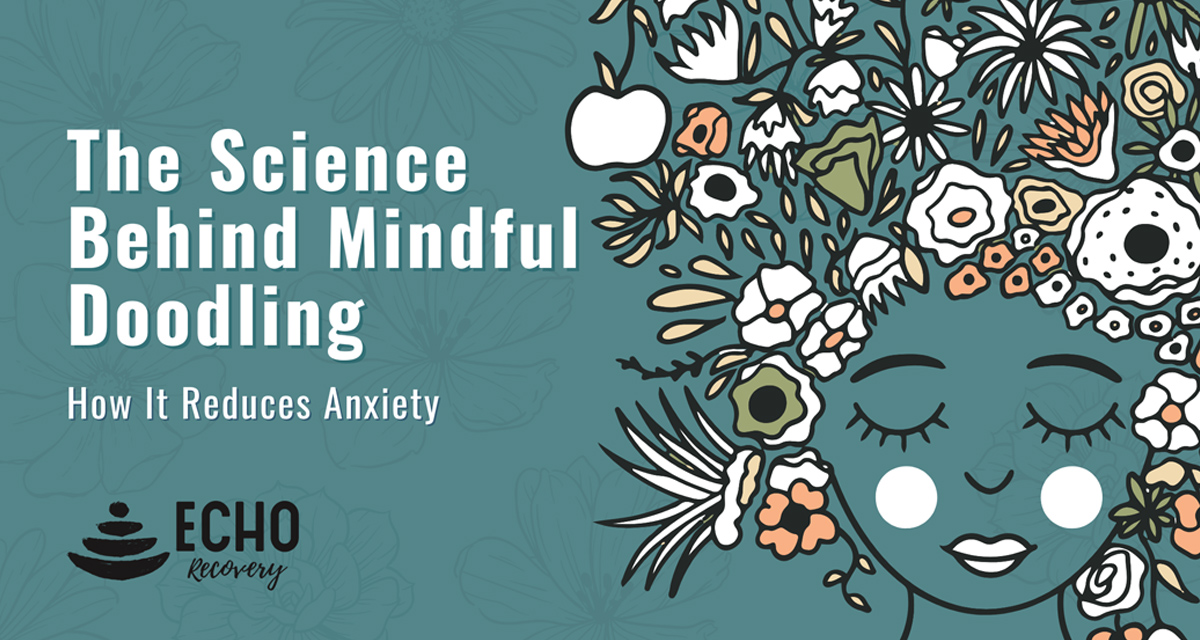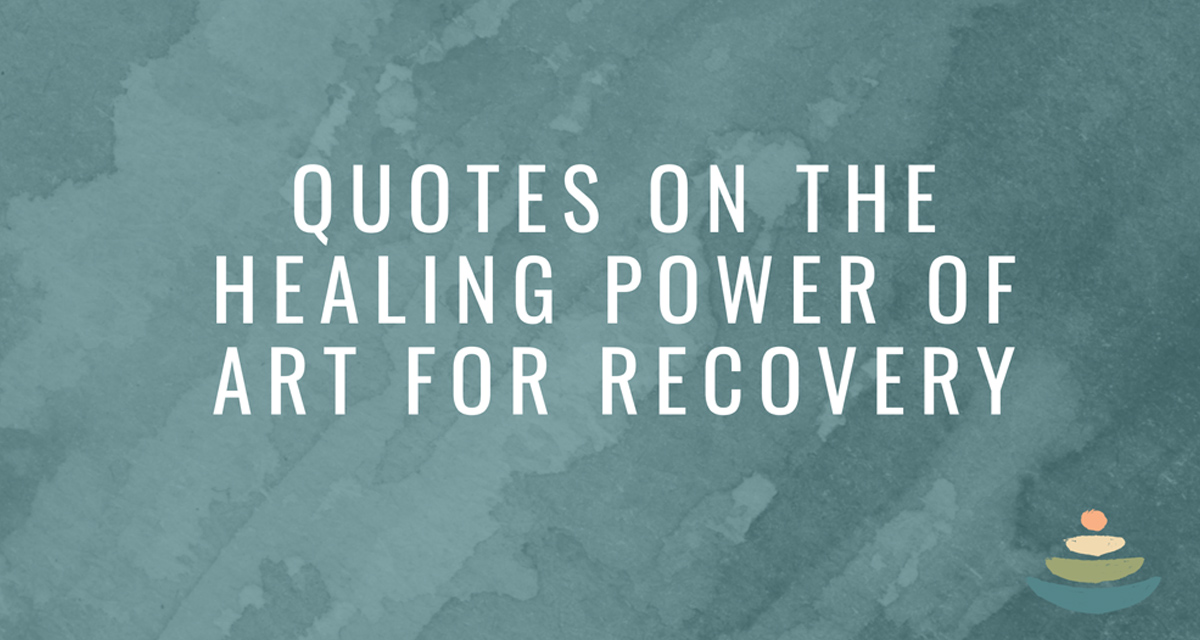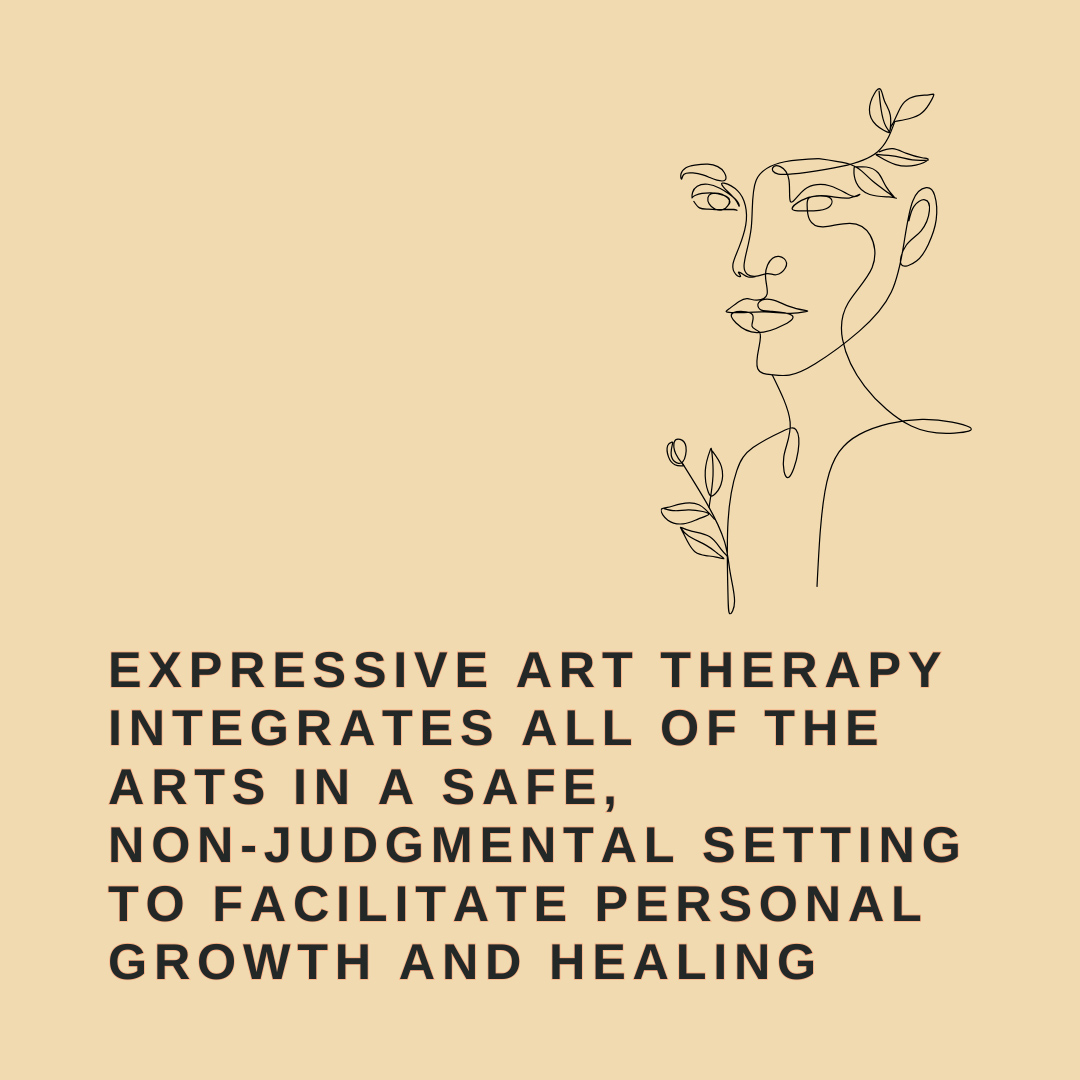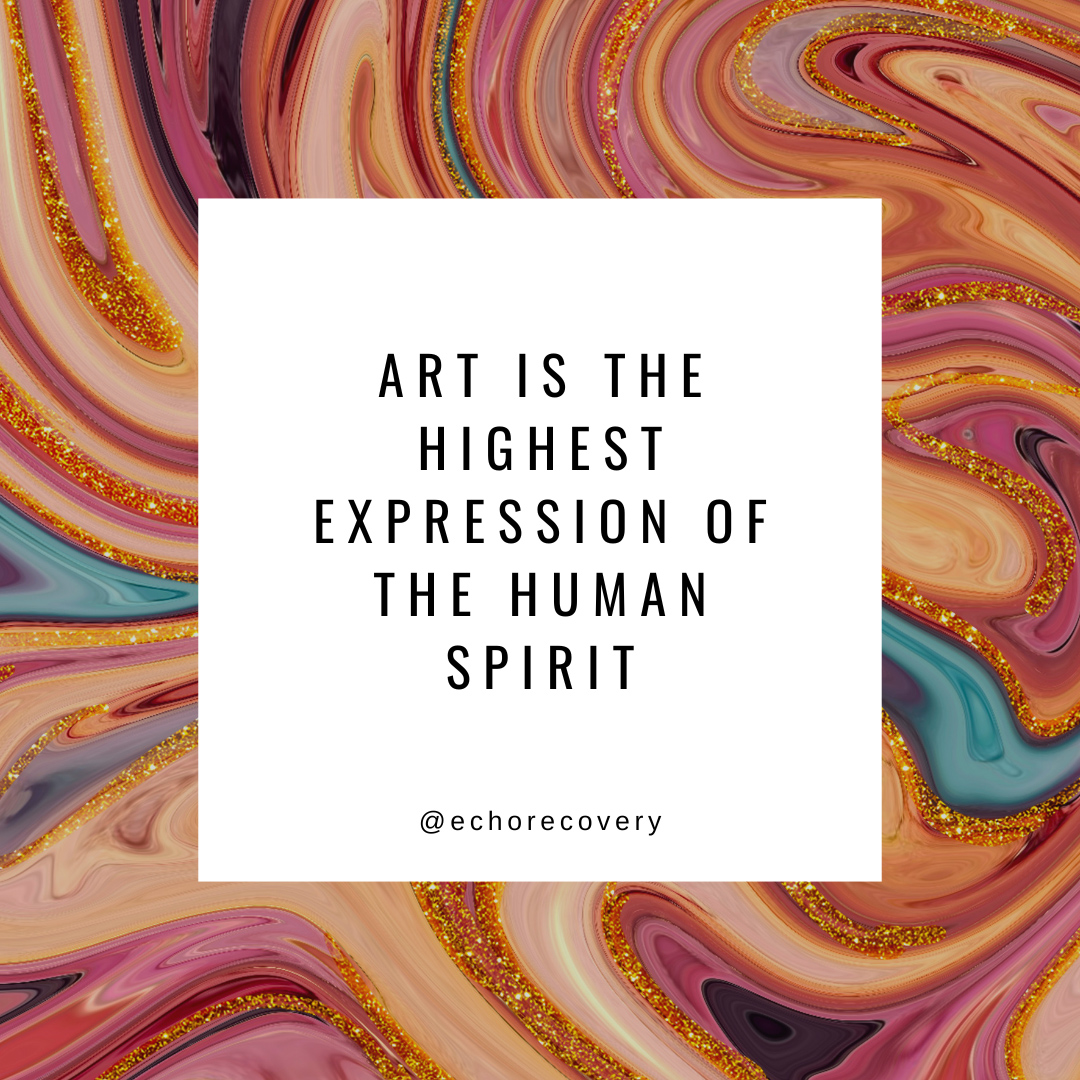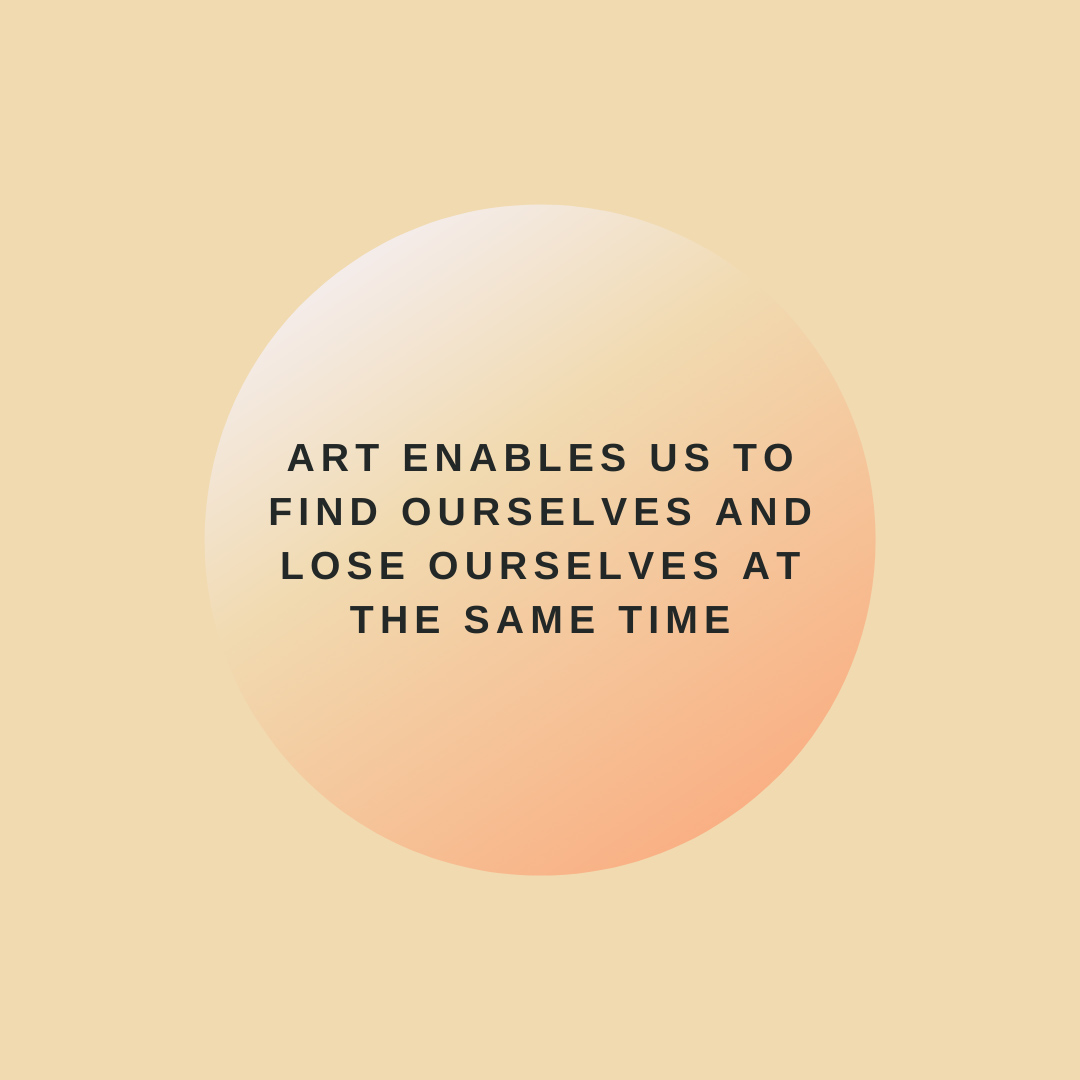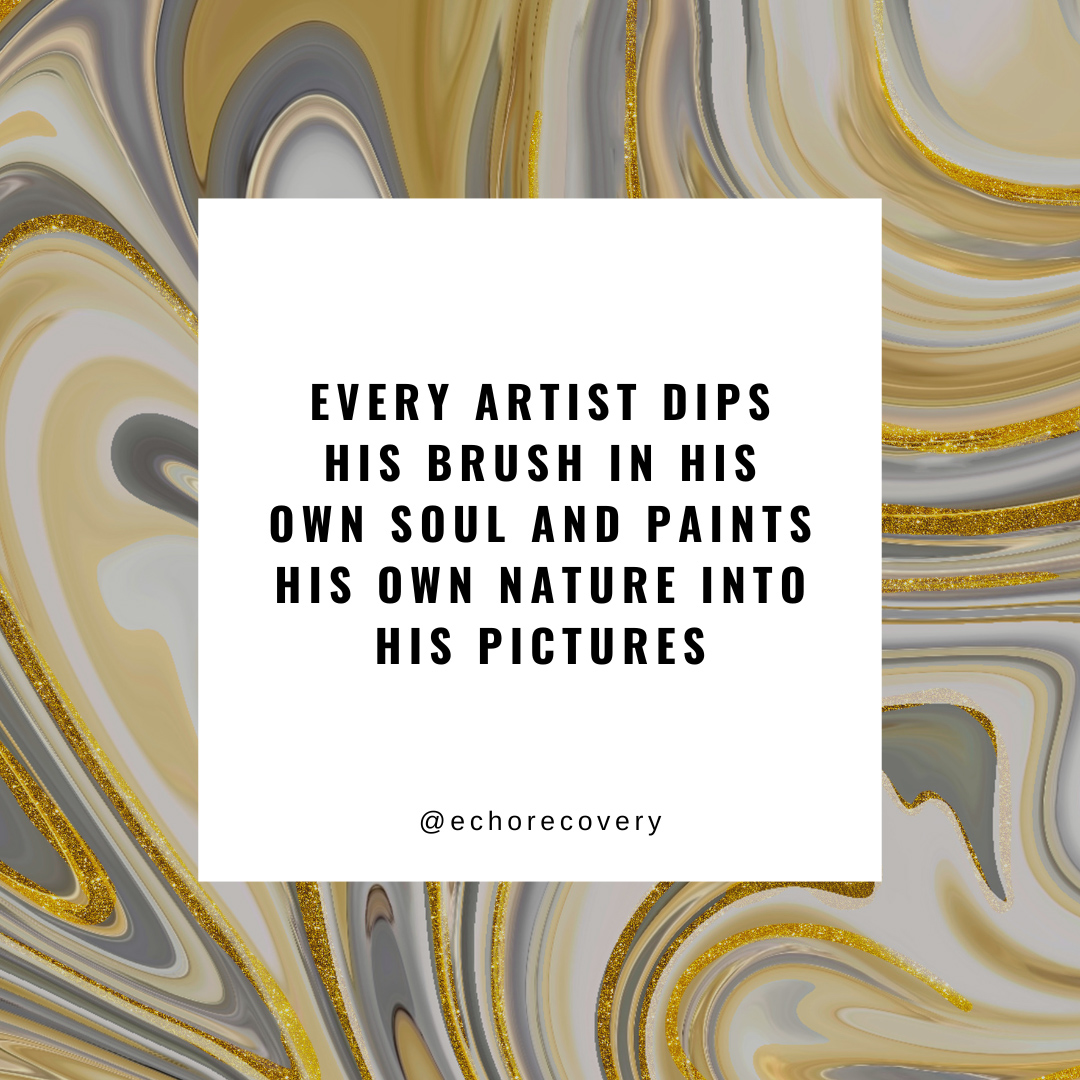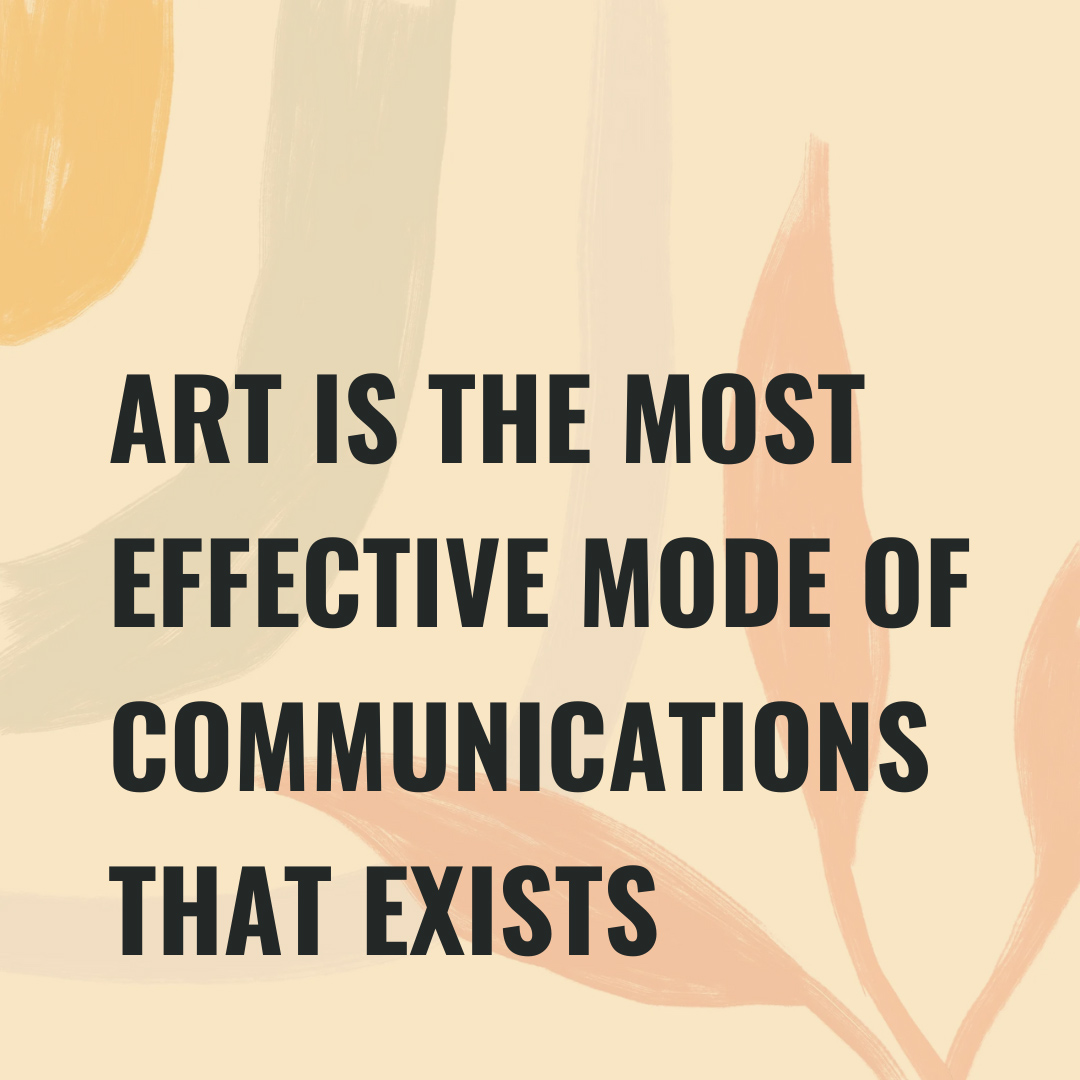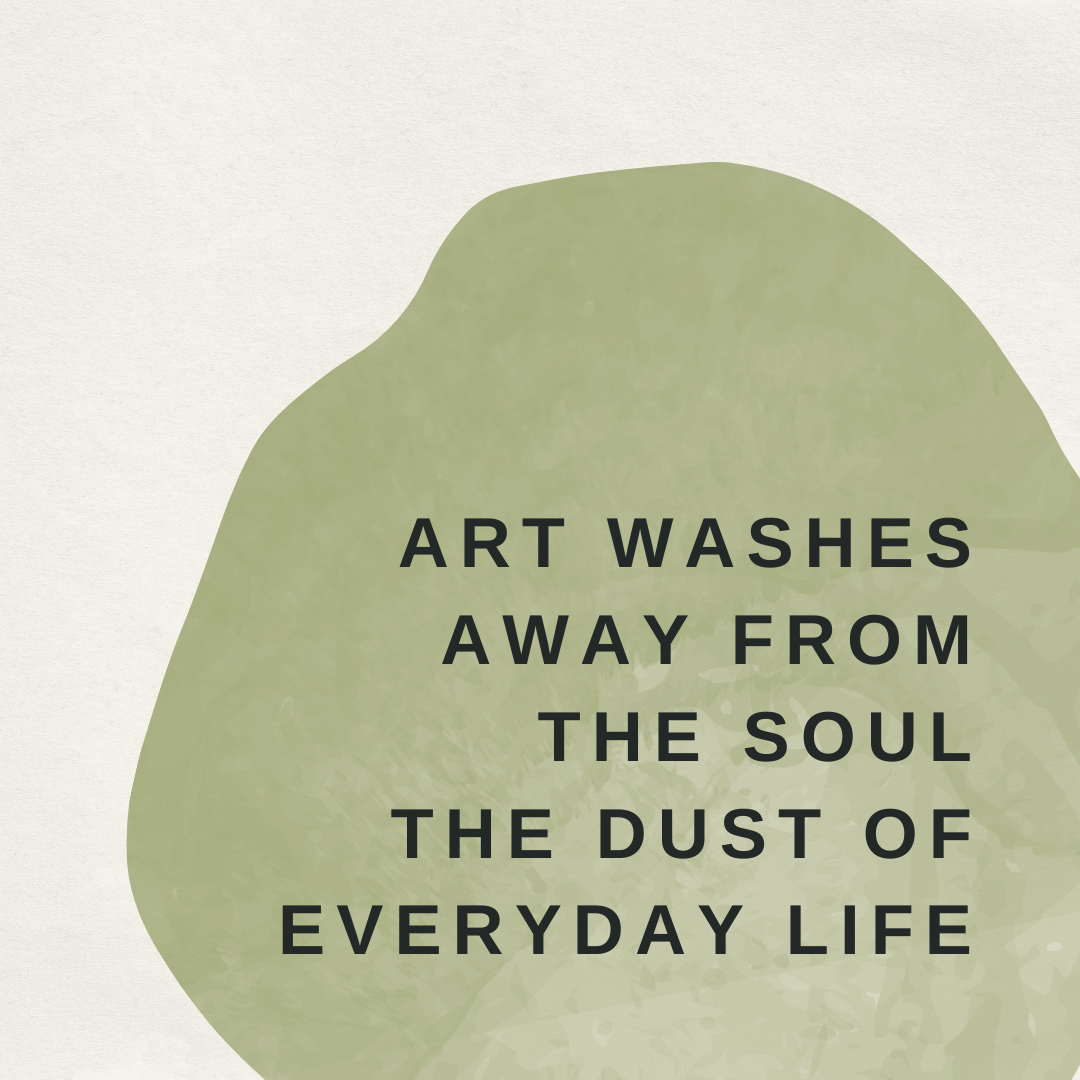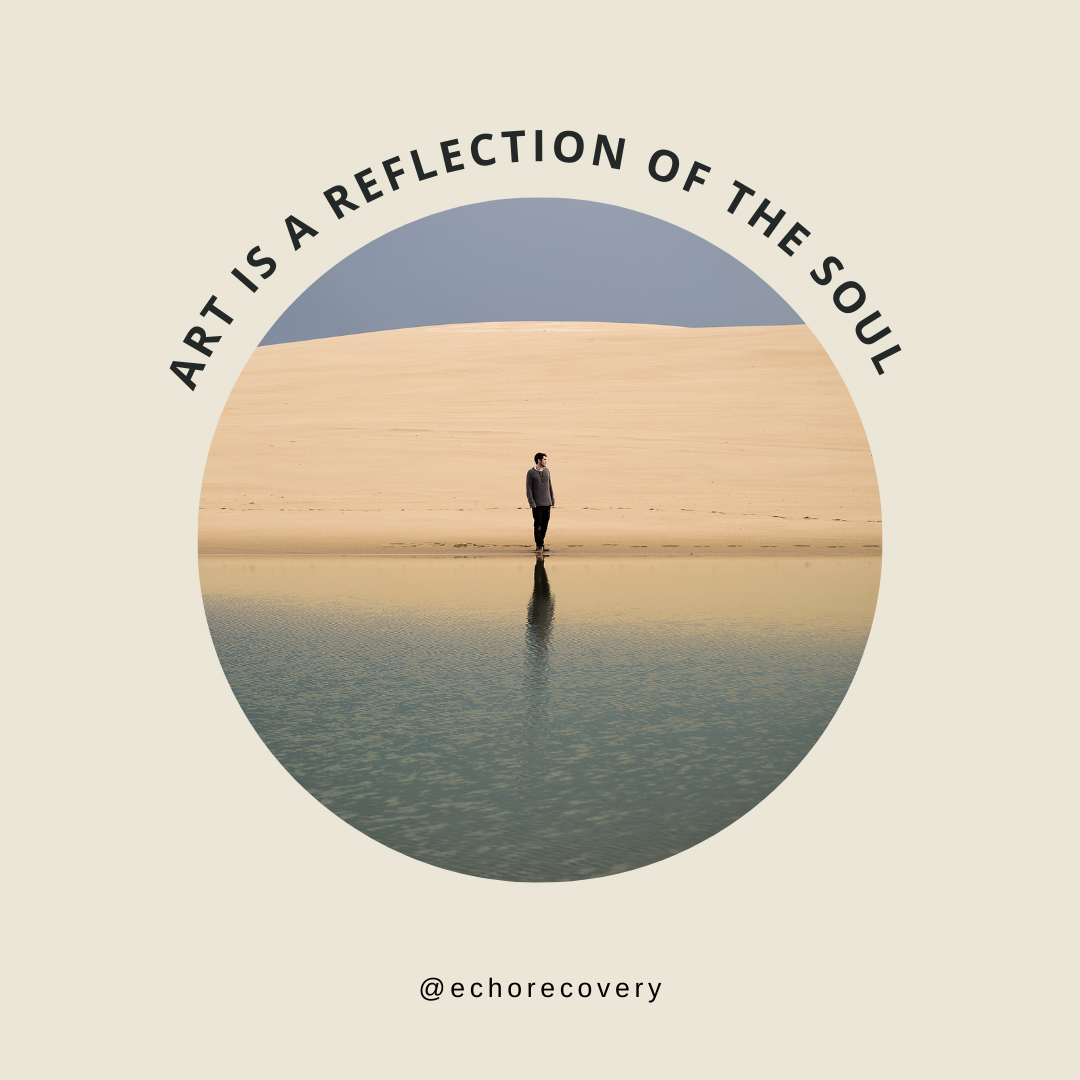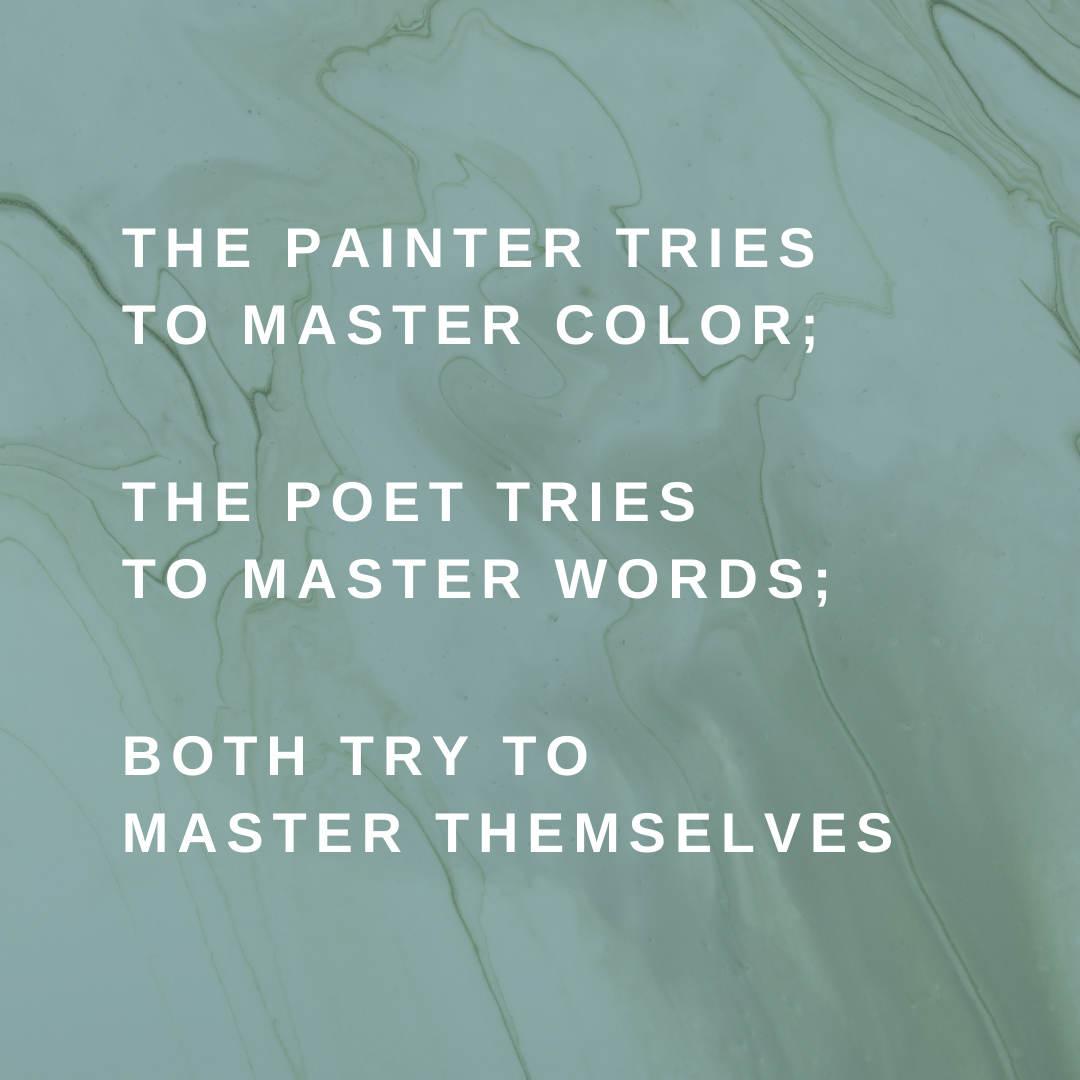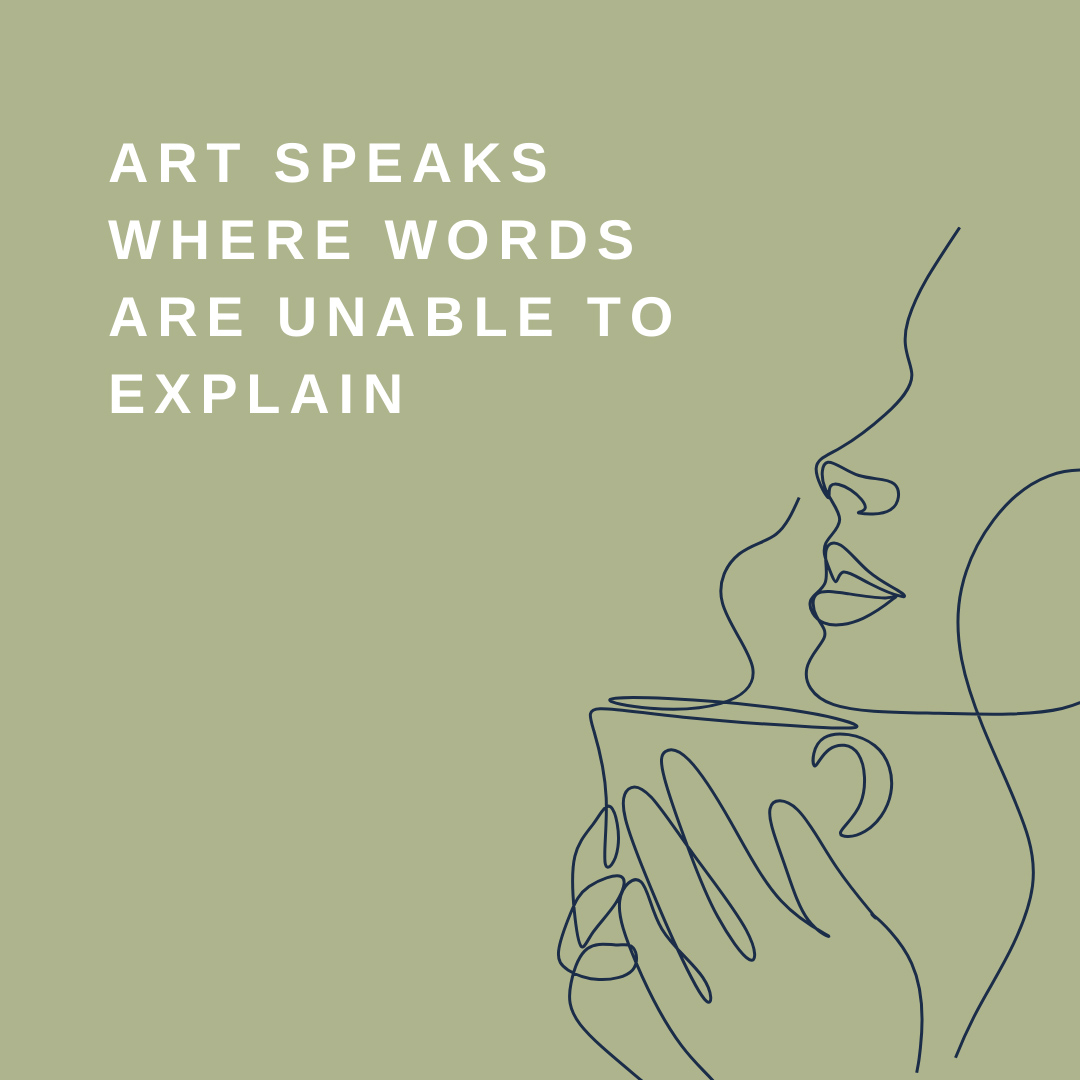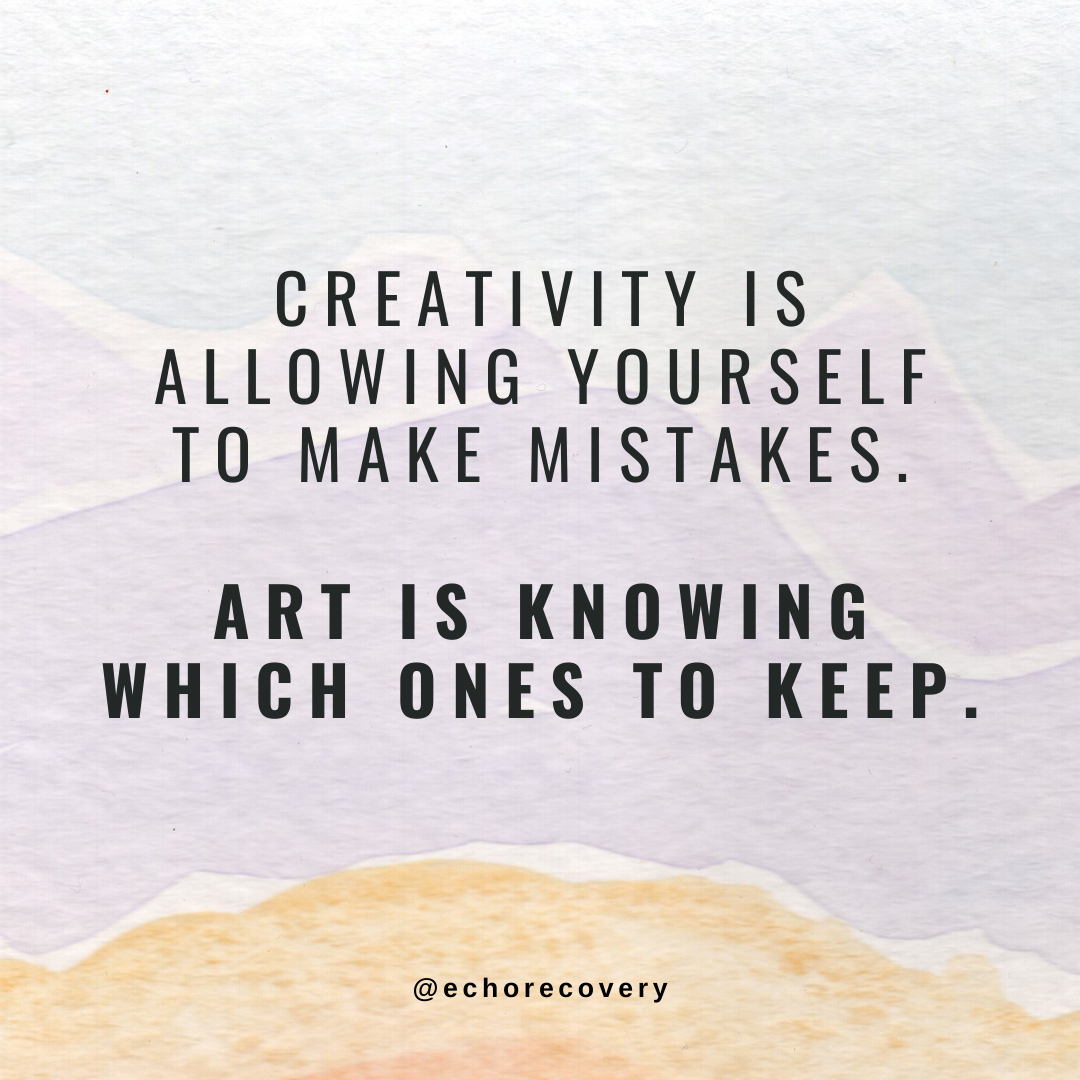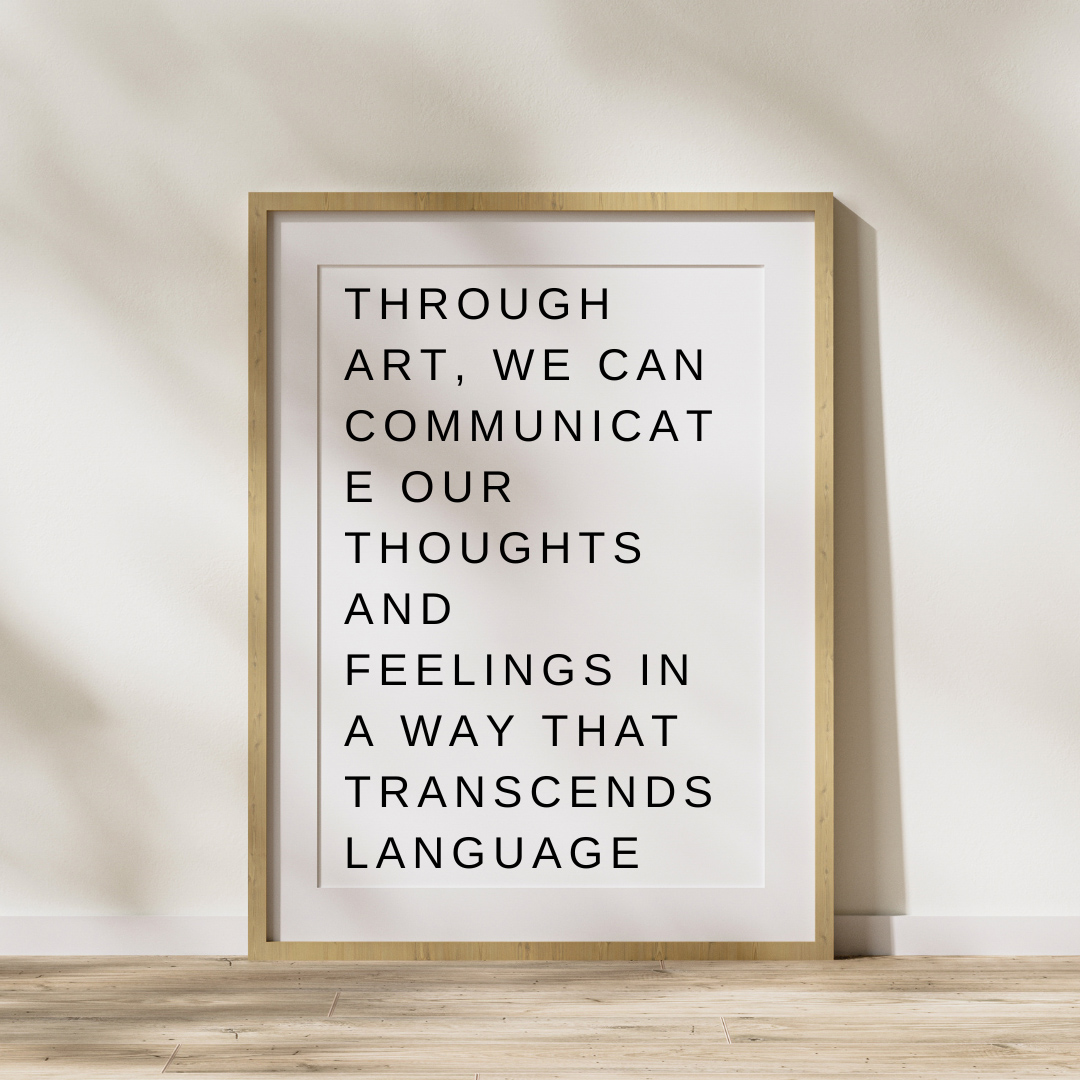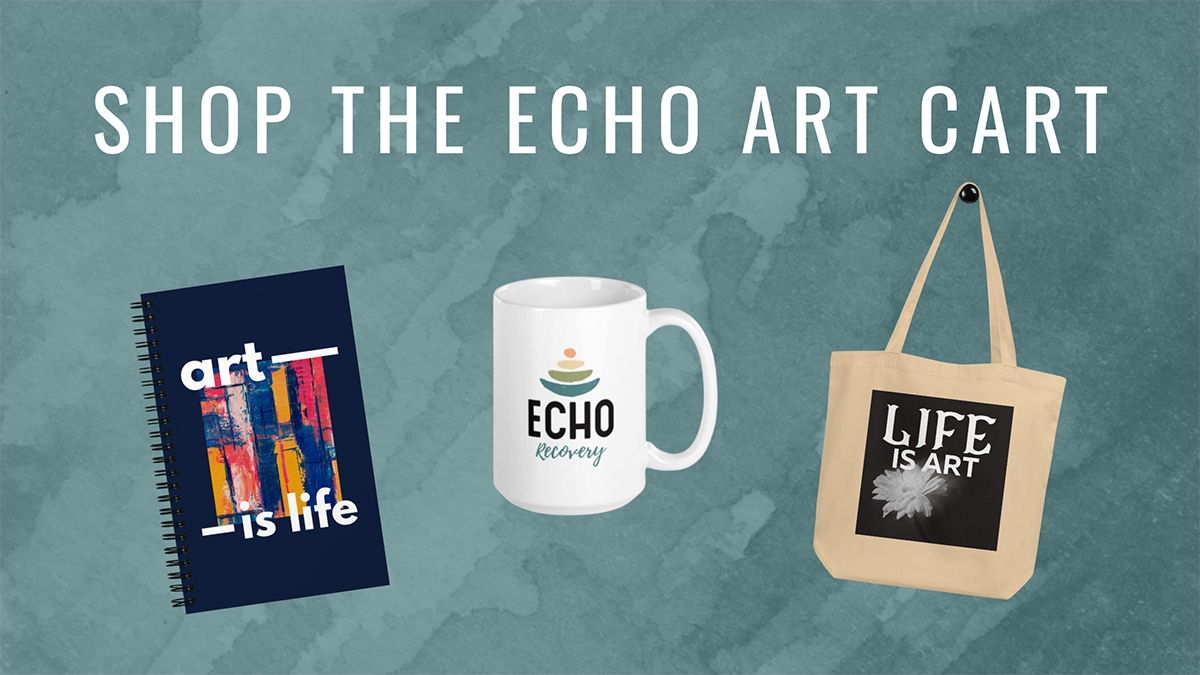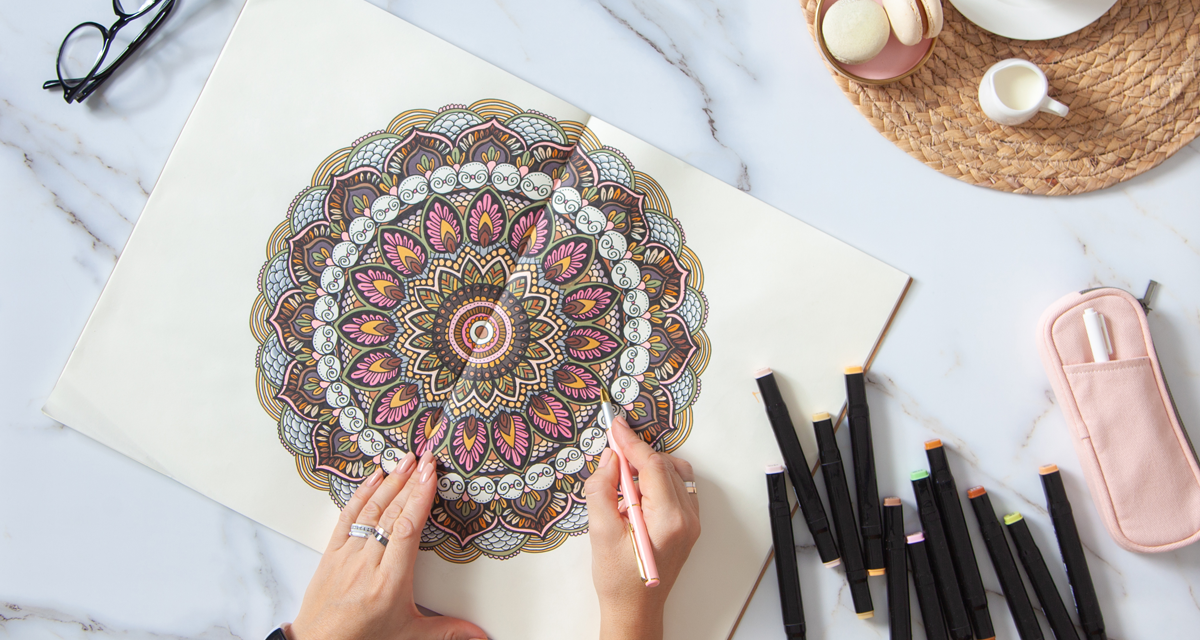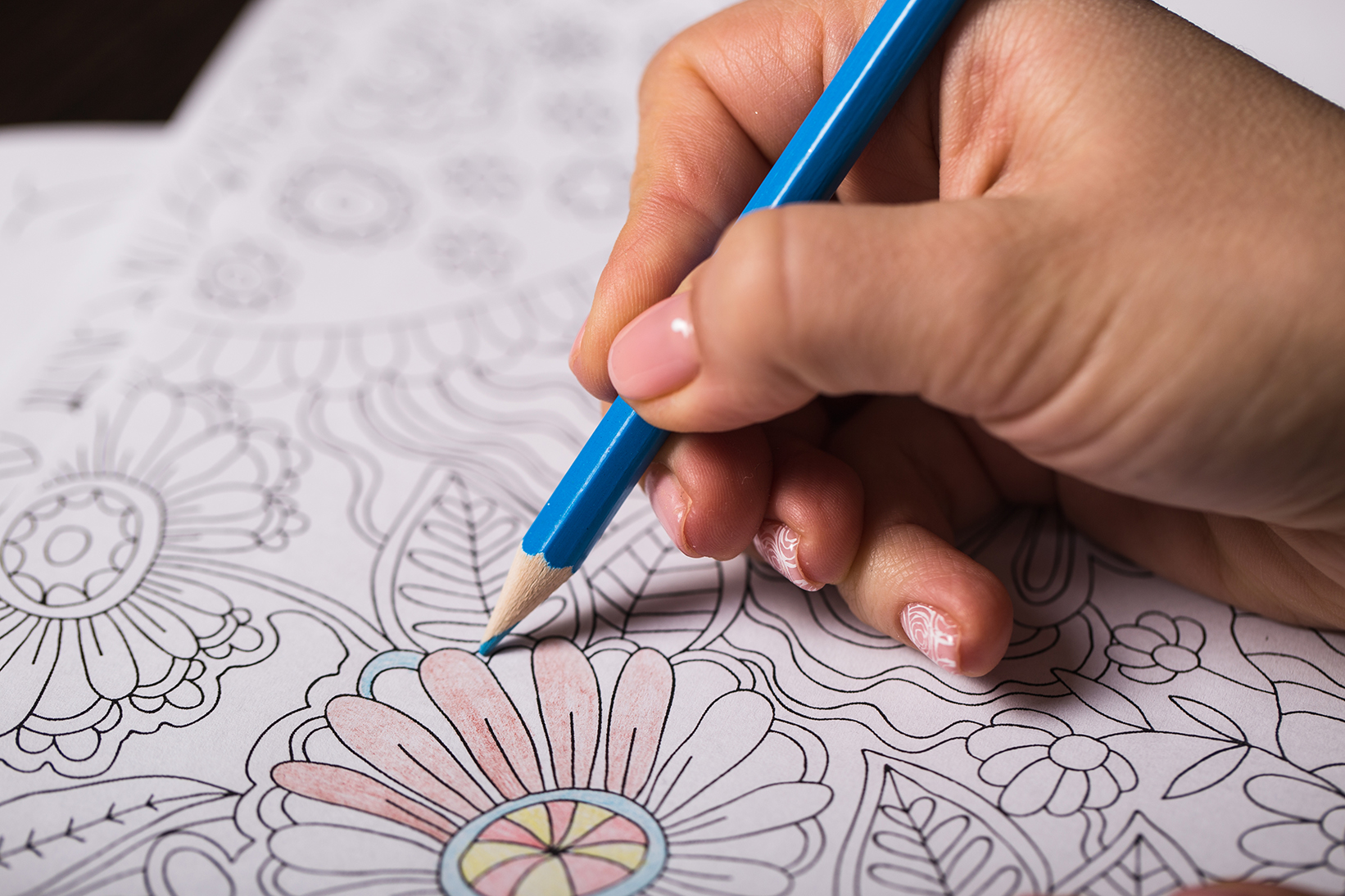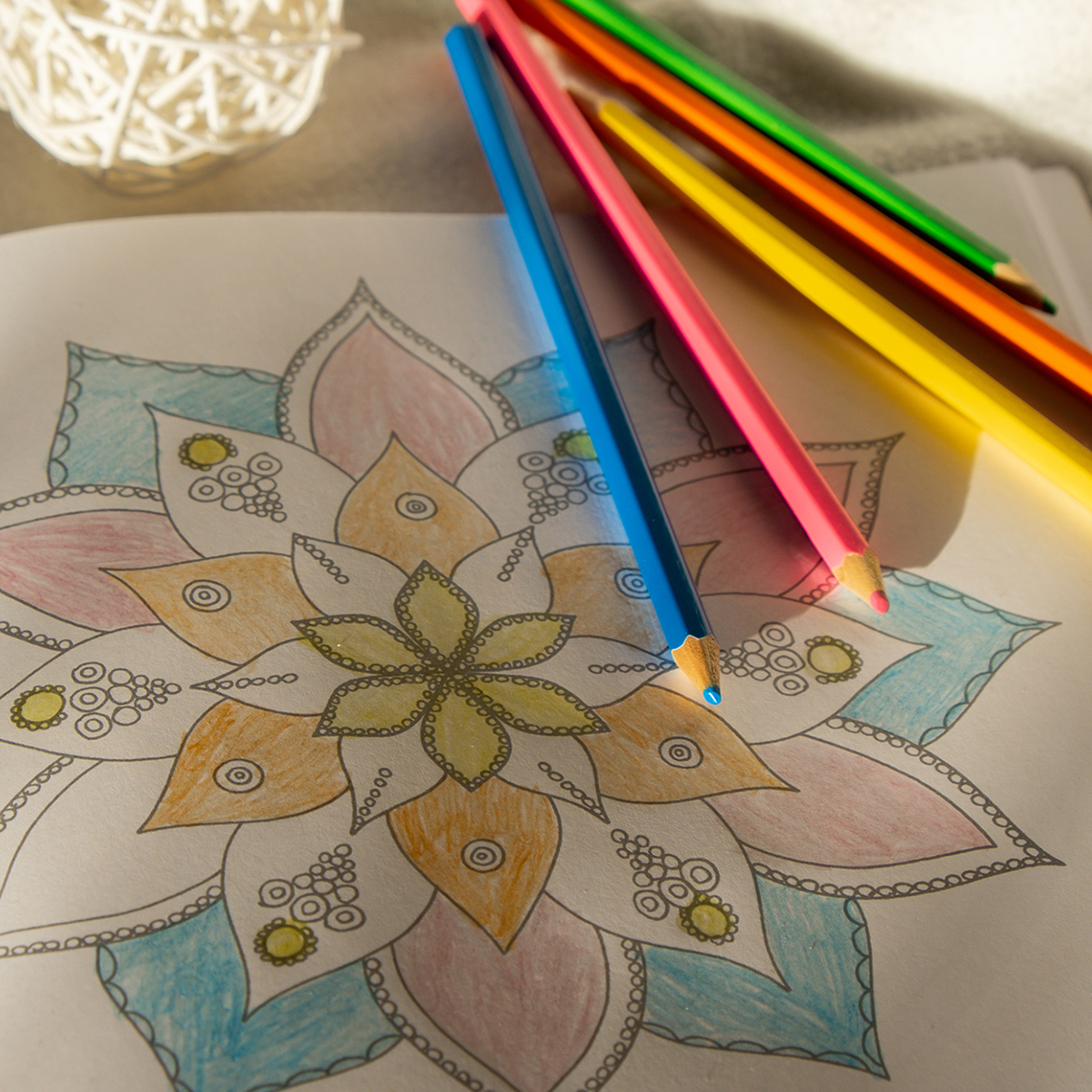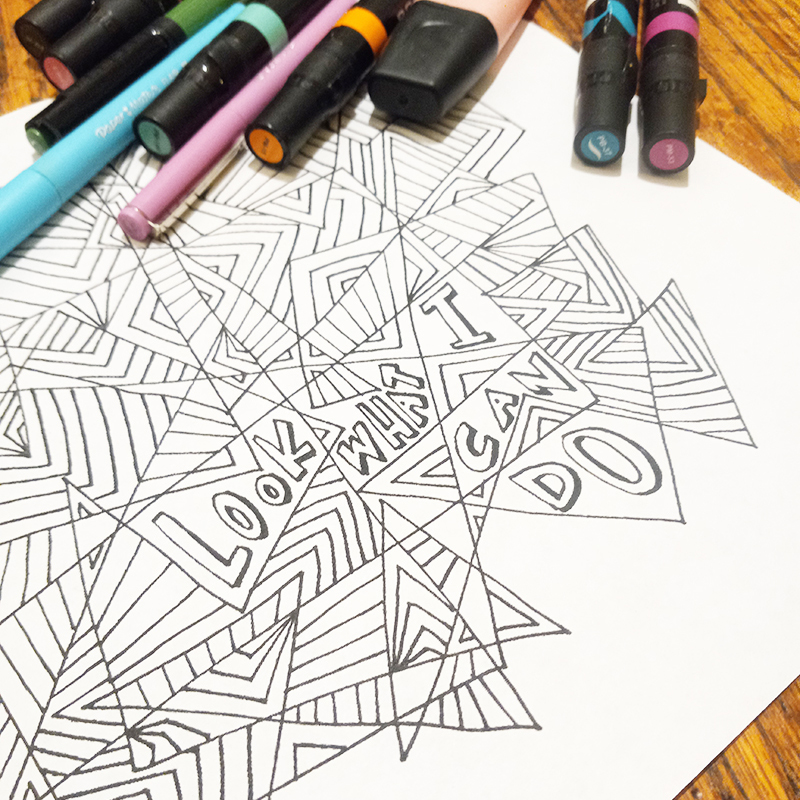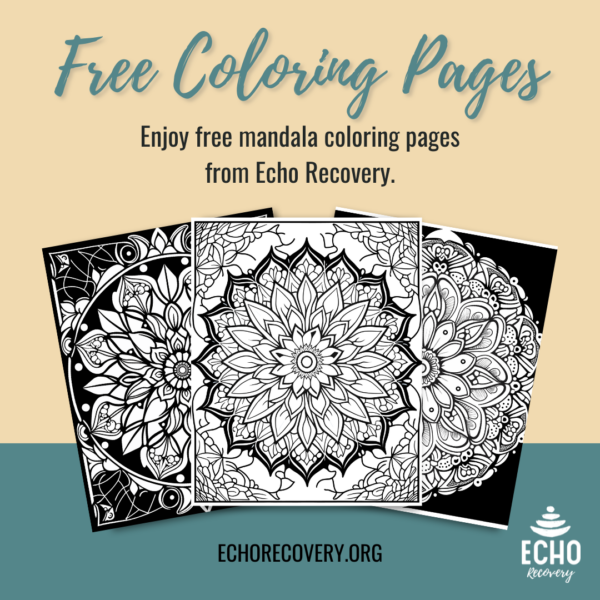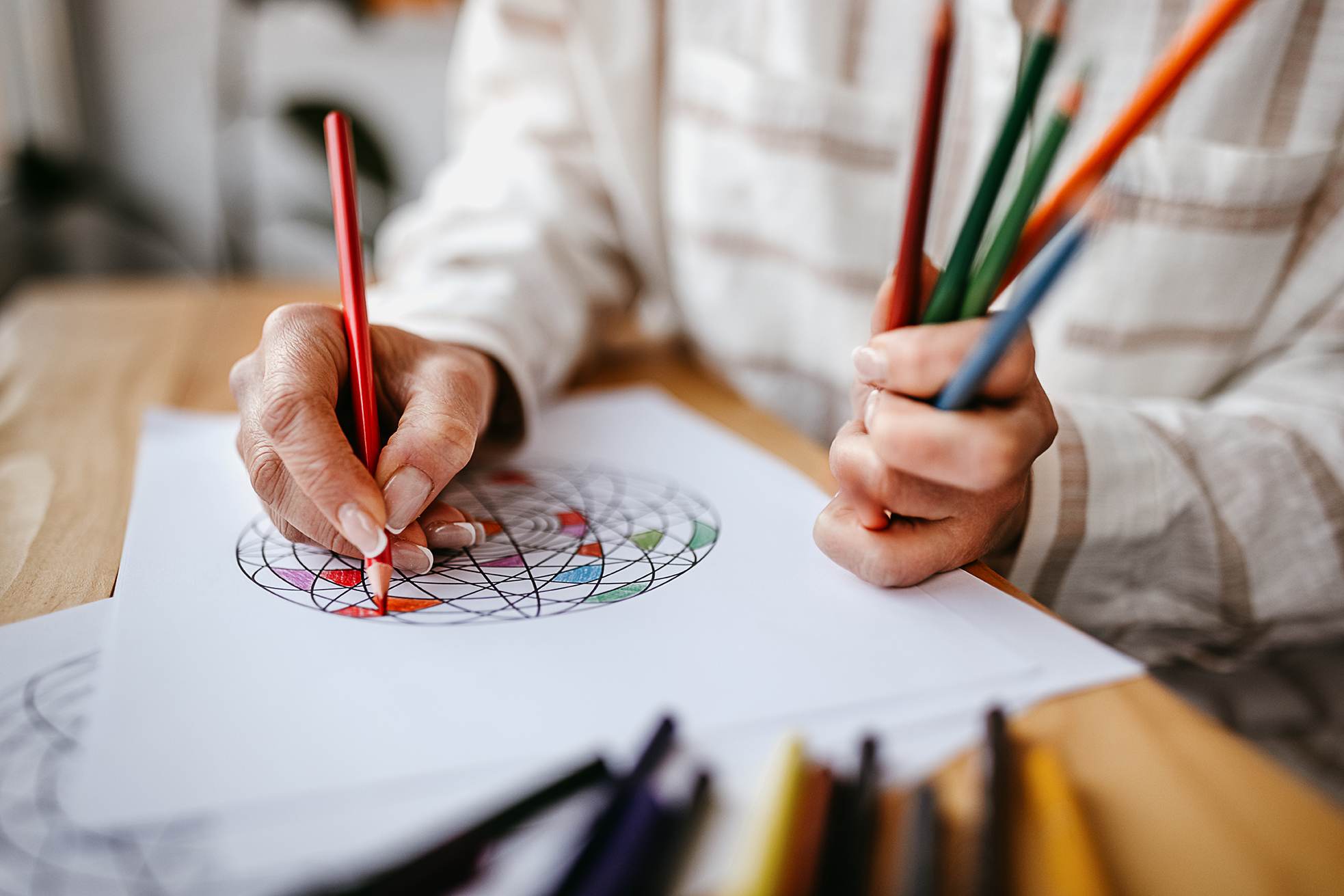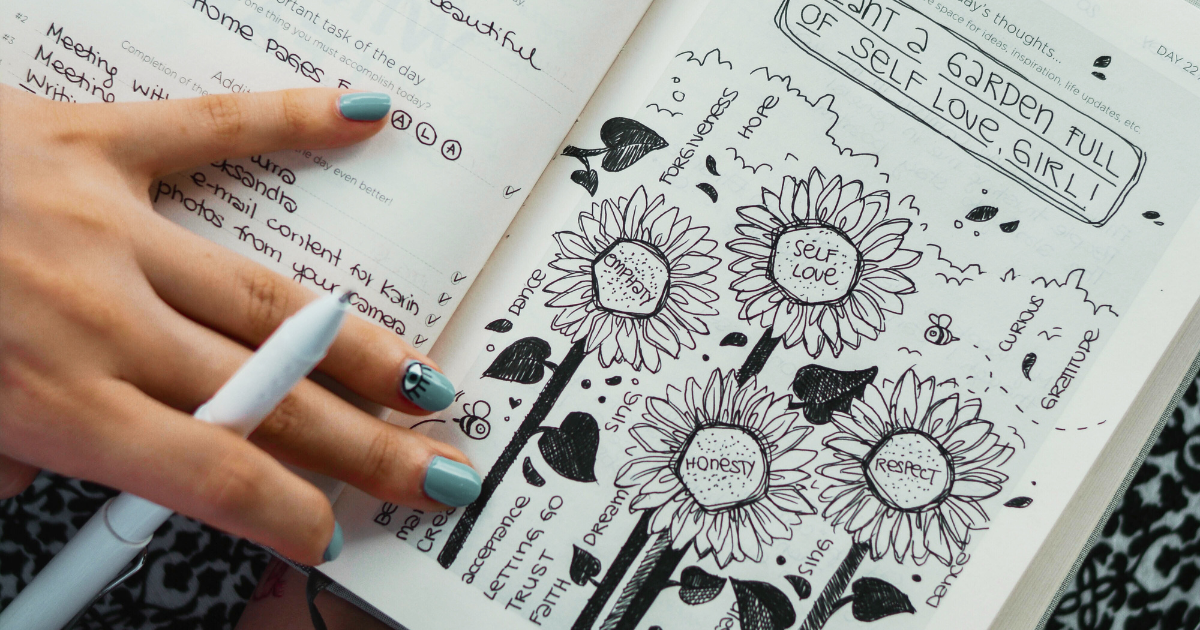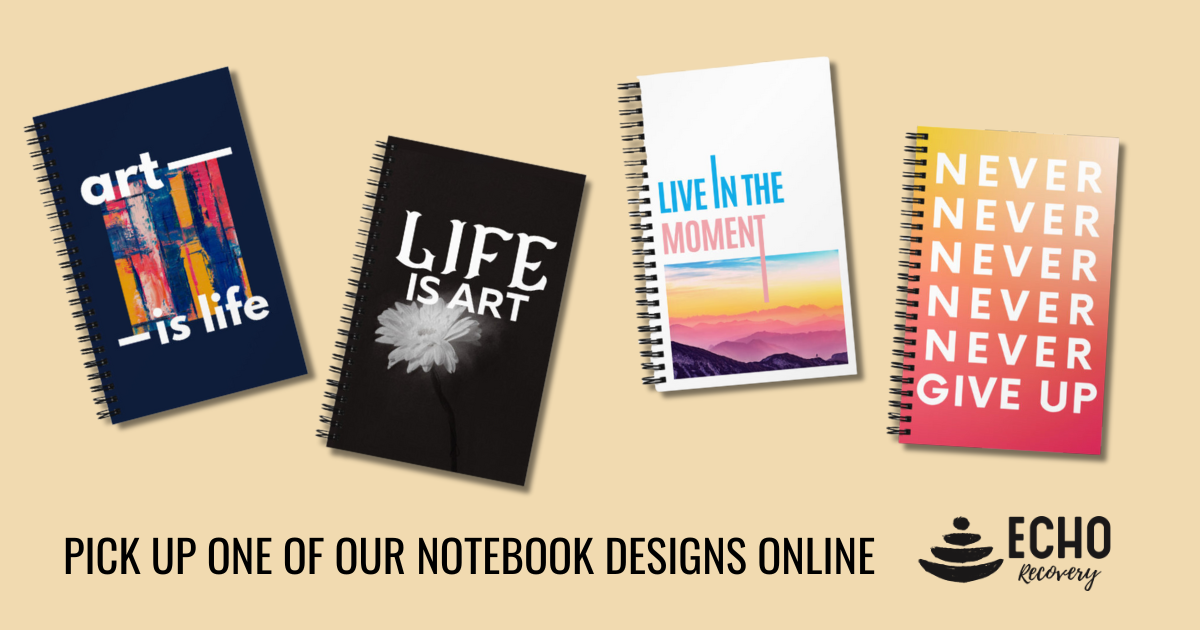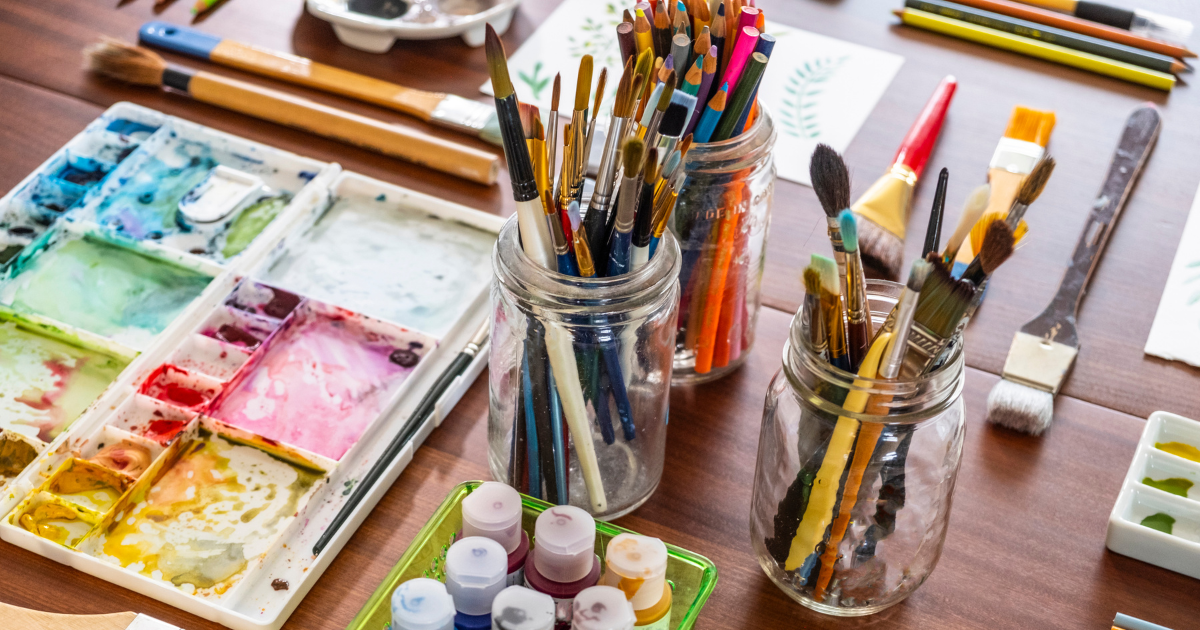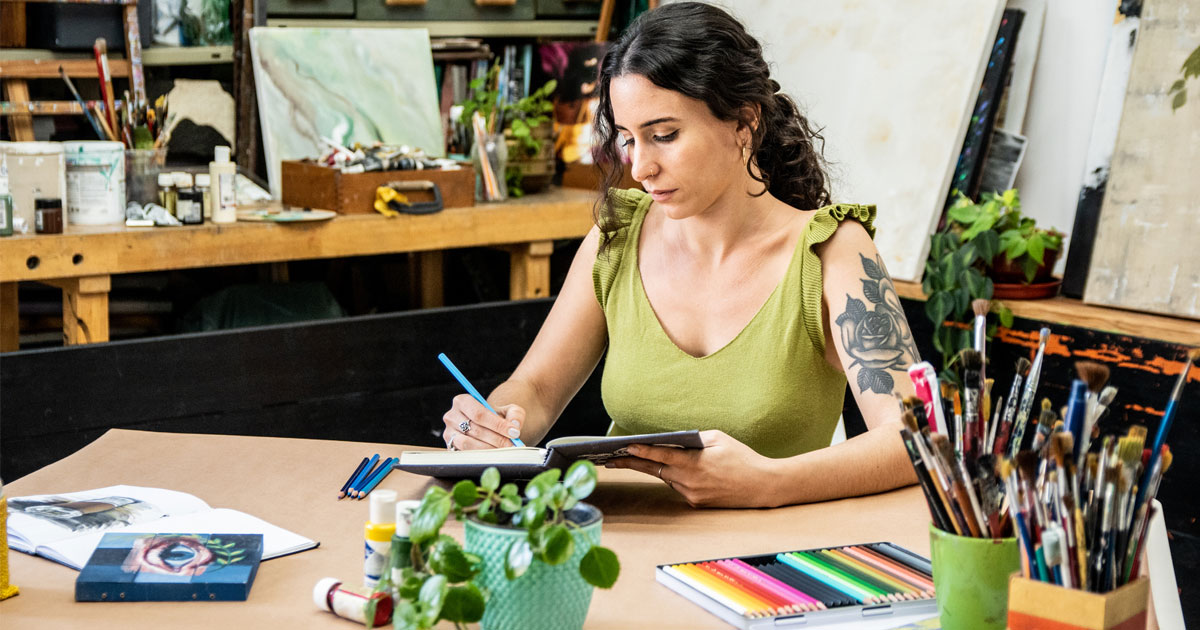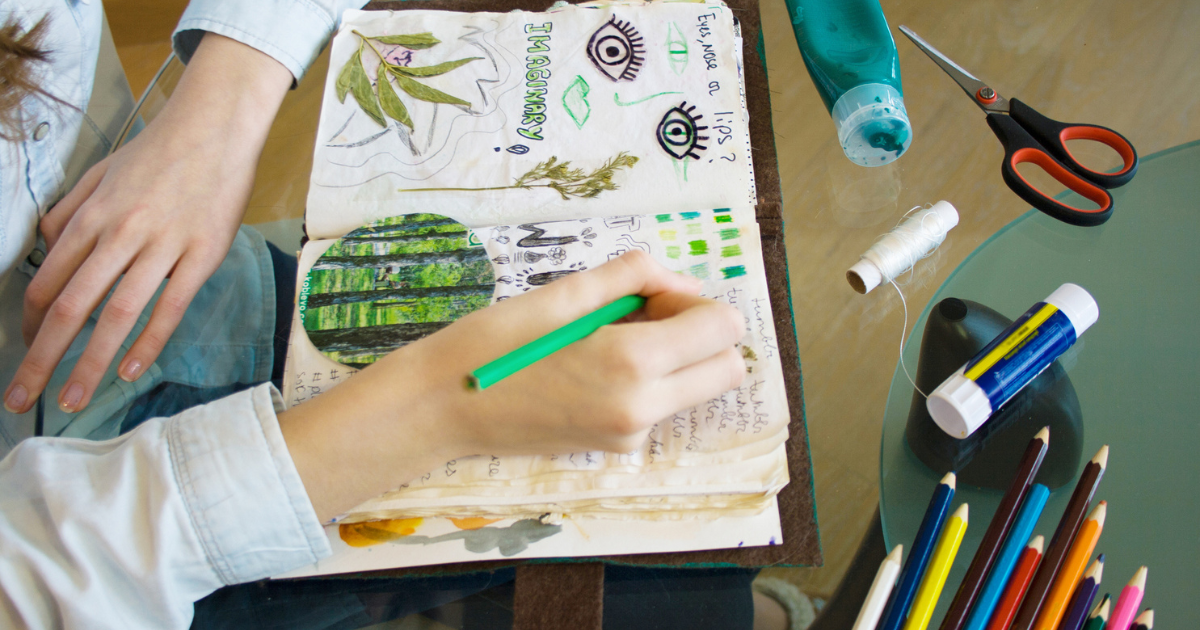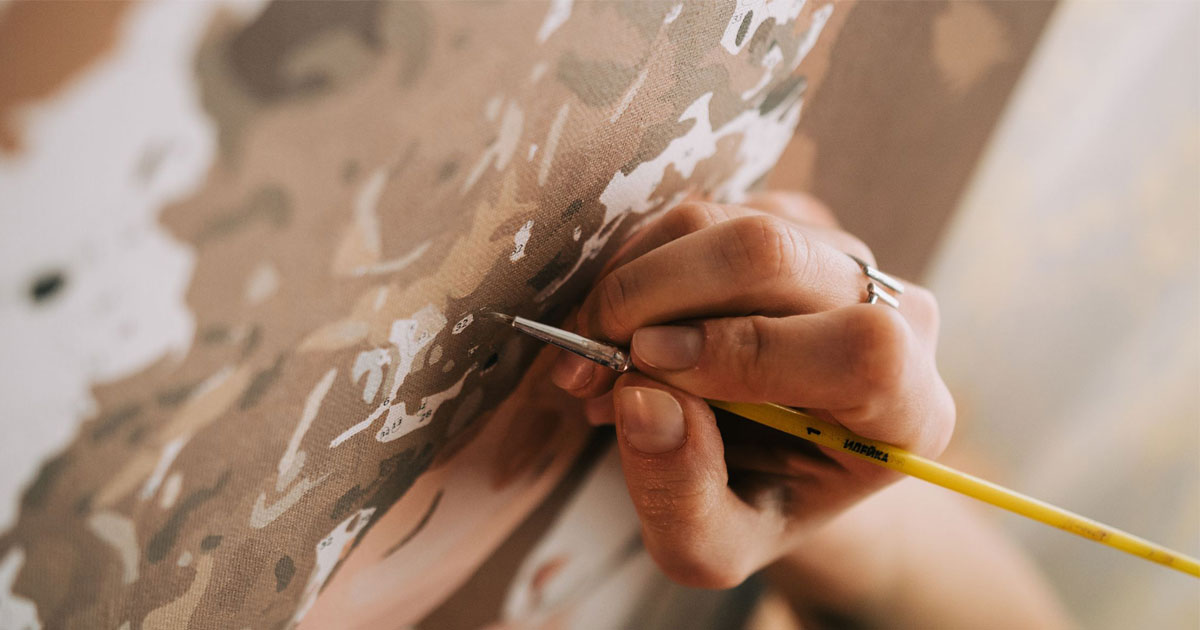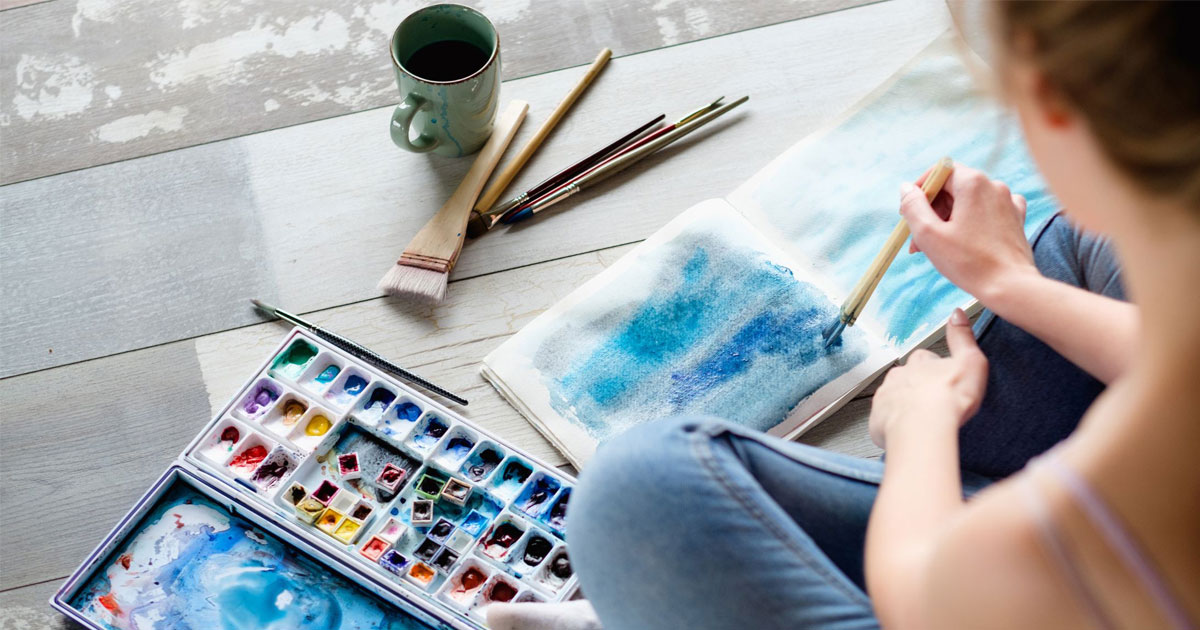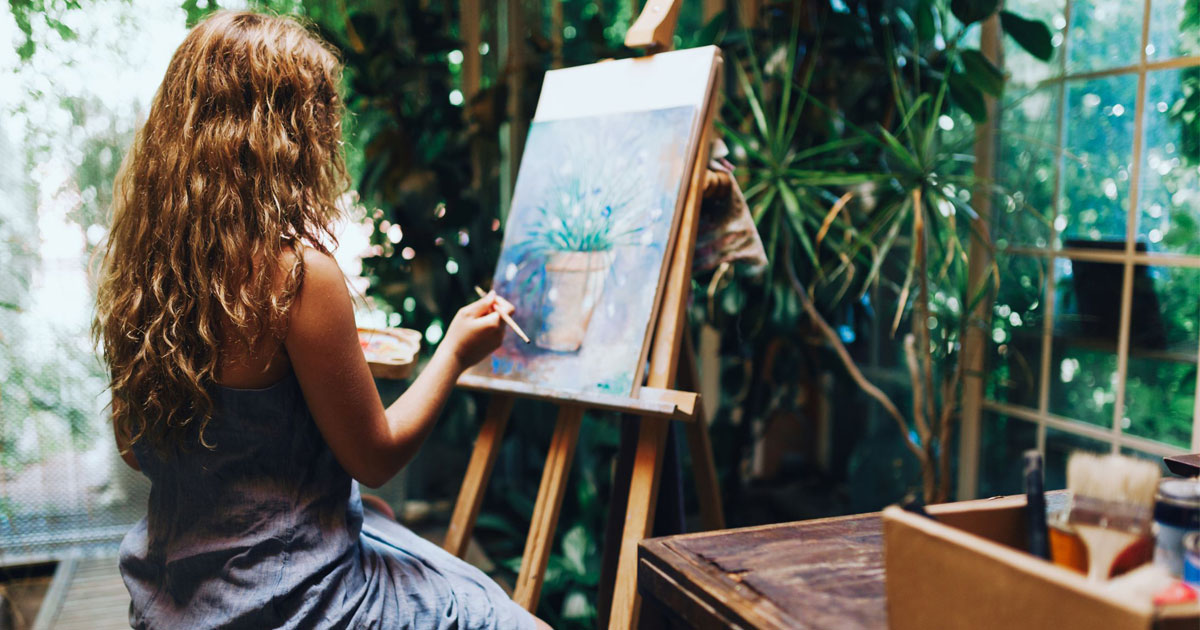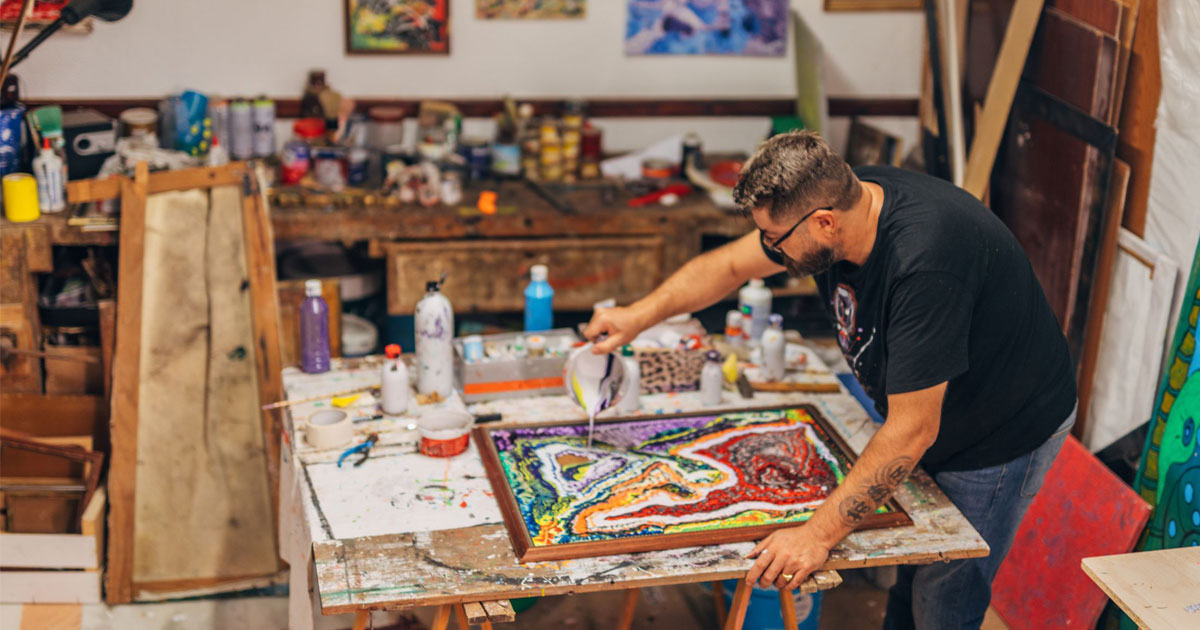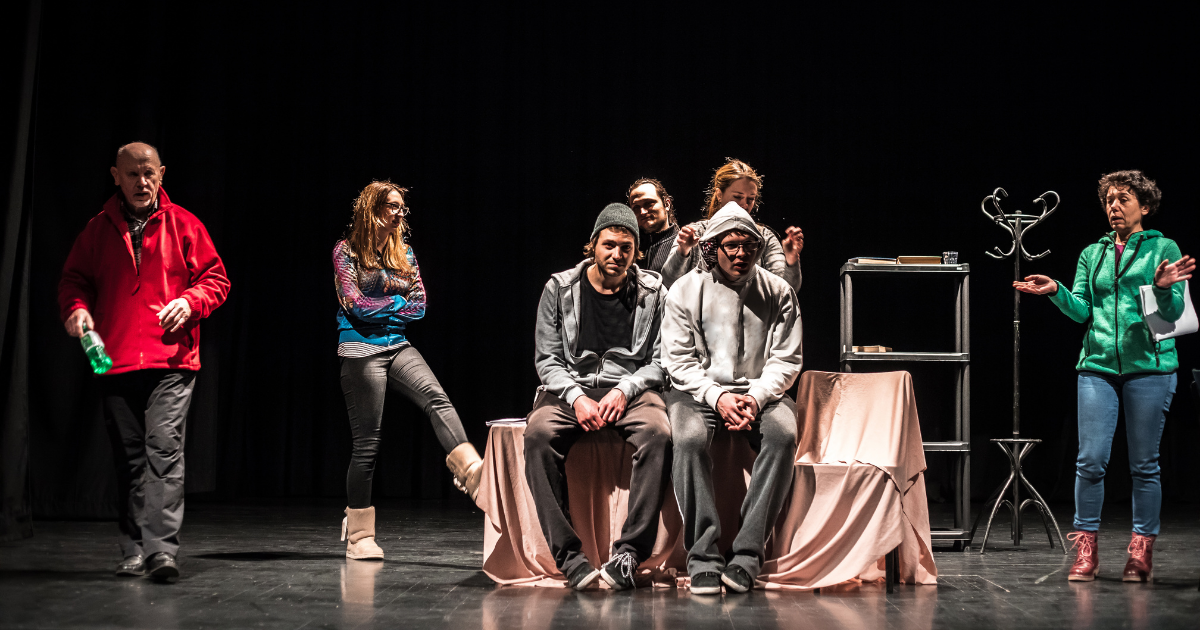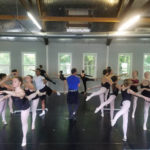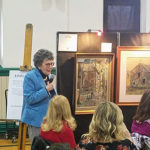Feeling overwhelmed? Sometimes, all it takes is a pen and paper to find your calm. Stress has a way of creeping into our everyday routines, whether it is a packed schedule, endless tasks, or the weight of responsibilities pressing down on us. However, mindful doodling, a simple and creative practice, can help quiet the chaos and bring a sense of calm.
In this post, we will dive into the science behind mindful doodling, explore its mental health benefits, and walk you through an easy exercise you can try. Watch the video below and follow along—you might be surprised at how a few simple lines and shapes can transform your mood.
What is Mindful Doodling?
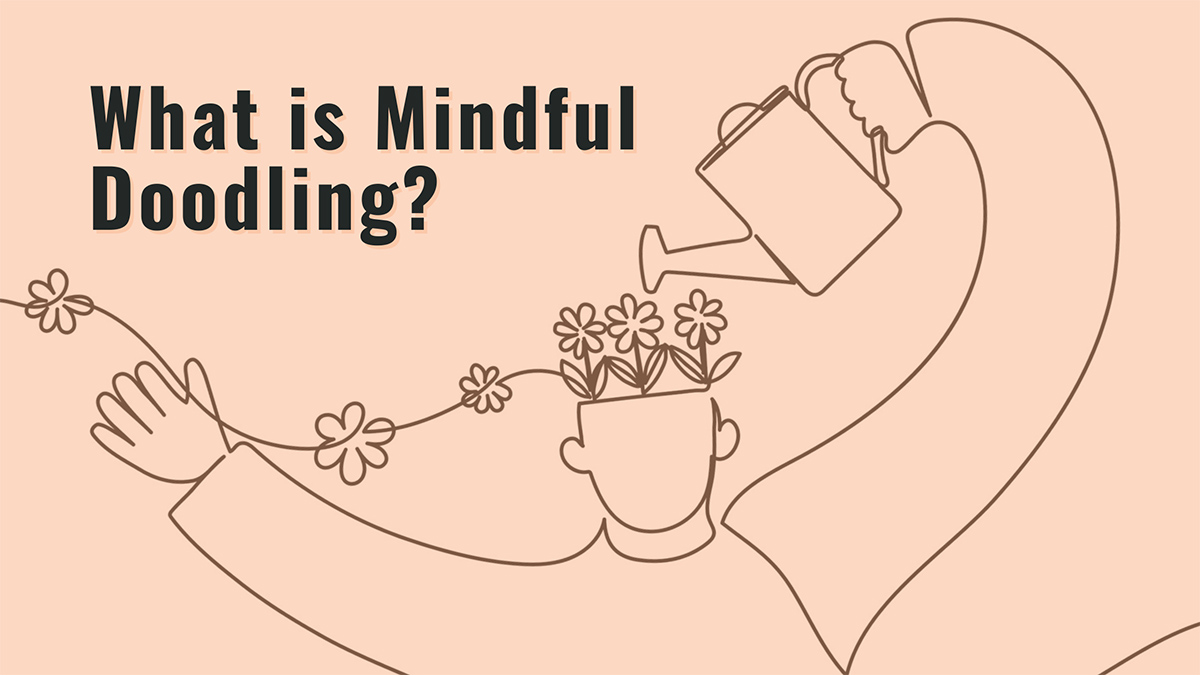
Mindful doodling is the simple act of drawing spontaneous, freeform patterns or shapes while staying focused on the present moment. Unlike traditional drawing, mindful doodling is not about creating a masterpiece or following a set plan. There is no need for artistic skill, no pressure to get it right, and no expectations for the outcome.
The goal is to engage with the process itself, letting your pen move across the paper without judgment. This creative, mindful activity can help quiet a busy mind, release tension, and promote a sense of calm through the rhythm of each line and shape.
Mindful doodling often includes repetitive patterns like spirals, waves, and circles. These repetitive motions give the mind a break from problem-solving and decision-making, encouraging a state of relaxed focus. Many people find this process meditative, as it gently pulls attention away from stress and anchors it in the here and now.
Doodling also fosters self-expression. Without any artistic rules or objectives, individuals are free to explore emotions, thoughts, and ideas through simple visual patterns. This sense of freedom can be empowering, particularly for those who struggle to articulate their feelings through words.
The Science Behind It
Doodling may seem like a simple, playful activity, but it actually engages powerful processes in the brain that trigger the relaxation response. When you doodle, you combine fine motor skills, focused attention, and mindfulness, all of which help shift the brain from a state of stress to a state of calm.
Research supports the idea that creative activities like doodling can reduce stress levels. A 2008 study published in Art Therapy: Journal of the American Art Therapy Association found that engaging in artistic activities significantly reduced stress, regardless of prior artistic experience. The study highlighted how creative expression helps lower cortisol, the body’s primary stress hormone, by encouraging a focused, meditative state.
When you doodle mindfully, you become more present and less caught up in anxious thoughts. The rhythmic, repetitive nature of doodling encourages the brain to enter a calm, meditative state, much like the effects of deep breathing or mindfulness exercises. This simple practice can serve as a grounding tool during stressful moments, offering both immediate relief and long-term benefits for emotional well-being.
From a neurological perspective, doodling engages the brain’s default mode network (DMN), which is involved in self-referential thinking and daydreaming. When the DMN is active during doodling, it allows the brain to process emotions subconsciously, often leading to feelings of clarity and insight. This is why many people find that ideas or solutions surface after a doodling session.
Benefits of Mindful Doodling
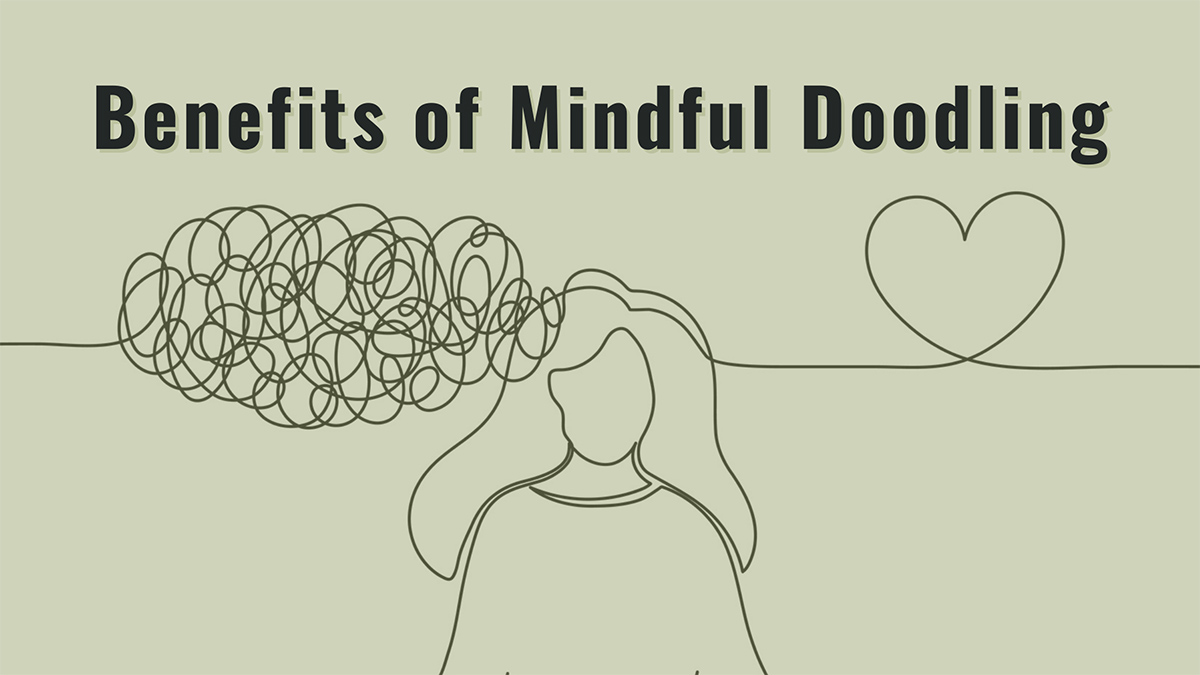
Mindful doodling offers a variety of mental and emotional benefits that support overall well-being.
By engaging in this simple, creative practice, you can experience:
- Increased Mindfulness: The repetitive, simple motions of doodling help you stay anchored in the present moment, reducing the mind’s tendency to wander into anxious or overwhelming thoughts. Over time, this practice can enhance overall mindfulness in daily life, improving focus and attention.
- A Healthy Outlet for Self-Expression: Doodling provides a non-verbal way to express emotions that might feel difficult to put into words. It is a safe, judgment-free space to process thoughts and feelings. Expressing emotions through art can help reduce the mental load of unspoken worries or frustrations.
- Reduced Mental Clutter: Focusing on lines, shapes, and patterns redirects attention away from stress and mental noise, creating space for clarity and calm. This act of “offloading” excess thoughts can improve concentration and leave you feeling more grounded.
- Boosted Creativity and Problem-Solving Skills: Regular doodling exercises stimulate creative thinking, helping your brain become more flexible when it comes to solving problems and generating new ideas. The freeform nature of doodling allows the mind to explore possibilities without constraints, encouraging innovative thinking.
- Lower Stress and Anxiety: By activating the parasympathetic nervous system, mindful doodling helps reduce the body’s stress response. Studies have shown that engaging in creative activities like doodling can significantly lower cortisol levels, resulting in a calmer, more balanced emotional state.
Whether you are looking for a quick way to ease anxiety or hoping to build a regular mindfulness practice, mindful doodling can become a go-to tool for calming your mind and reconnecting with yourself.
Watch Our Step-by-Step Guide to Mindful Doodling
Want to see this exercise in action? Watch our step-by-step guide to mindful doodling below! In just a few minutes, you’ll discover how a simple pen and paper can become powerful tools for easing anxiety and quieting a busy mind.
In this video, we walk you through the process of mindful doodling, from choosing your materials to creating calming patterns like spirals, waves, and circles. You’ll learn how this creative practice engages your brain’s relaxation response, helping to reduce stress and promote mental clarity.
No artistic skills required—just an open mind and a willingness to slow down. So, grab a pen, hit play, and experience how mindful doodling can become your go-to technique for finding peace in the moment.
Tips for Getting the Most Out of Mindful Doodling
Mindful doodling is most effective when it becomes a regular, relaxing habit.
Here are some simple tips to help you get the most out of your practice:
- Practice Consistently: Set aside just five minutes a day to doodle. The more regularly you engage with this creative practice, the more naturally your mind will shift into a calm, mindful state. Consistency helps train your brain to enter a relaxed state more easily over time.
- Create a Calming Atmosphere: Pair your doodling with soft, soothing music or practice deep breathing while you draw. This combination can enhance the relaxation response and help your mind stay focused on the present moment. Try nature sounds or instrumental music to maintain a peaceful mood.
- Let Go of Perfection: Remember, there is no right or wrong way to doodle. Focus on the process, not the outcome. Whether your lines are smooth or squiggly, symmetrical or abstract, every doodle serves the purpose of bringing you into the moment. Embrace imperfections—they are part of the experience.
- Experiment with Different Styles: Try drawing patterns, shapes, or abstract designs. Explore mandalas, zentangles, or simply let your pen move freely across the page. The goal is to stay present and engaged with each motion. Experimenting with new patterns can also boost creativity and prevent boredom.
- Pair Doodling with Breathwork: Take a deep breath as you draw each line or shape. Synchronizing breath and movement can deepen the calming effects of the exercise. If you feel tension creeping in, pause and take a few slow breaths before continuing.
With these simple strategies, mindful doodling can become a go-to tool for calming your mind, reducing anxiety, and nurturing your creativity.
Join the Journey Share Your Mindful Doodles
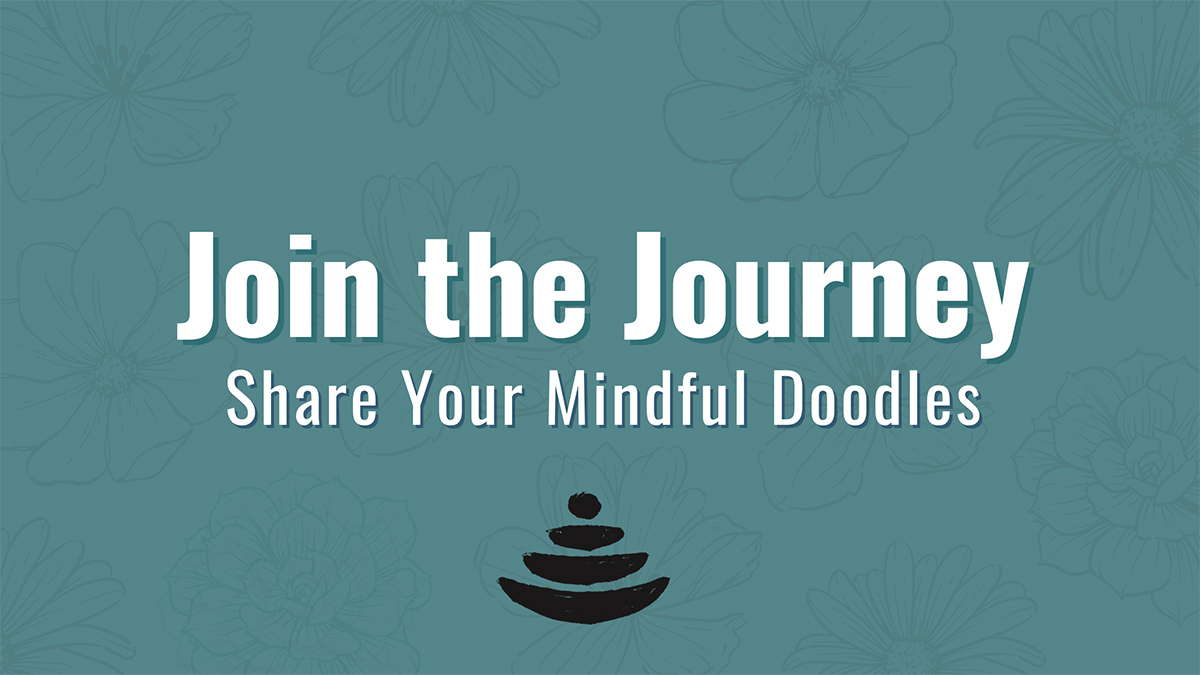
We hope you feel inspired to pick up a pen and give mindful doodling a try. Creativity is a powerful tool for calming the mind and fostering self-awareness. We would love to see your creations—share your doodles on social media with the hashtag #ECHOArtJourney and connect with others on this creative path.
Looking for more ways to de-stress through art? Check out our Transforming Perspectives Through Art activity for more ideas on using creativity as a tool for healing.
Stay connected and continue your mindful art journey with us. Sign up for our newsletter to receive more activities, videos, and resources to support your mental well-being.
Resources:
- American Art Therapy Association. (n.d.). Assessing stress: The relationship between eating disorders and stress. Retrieved from https://www.arttherapy.org/EatingDisorderToolkit/assessingstress.pdf
- University of Calgary. (2023, May 15). Brain research shows arts promote mental health. Retrieved from https://ucalgary.ca/news/brain-research-shows-arts-promote-mental-health
- Liu, Q., Wang, F., Tan, L., Liu, L., Cheng, H., & Hu, X. (2023). Comparative efficacy of various art therapies for patients with dementia: A network meta-analysis of randomized controlled trials. Frontiers in psychiatry, 14, 1072066. https://doi.org/10.3389/fpsyt.2023.1072066
- Rosen, D., Lord, S., & Mercer, K. (2018). Harnessing mobile health applications for bipolar disorder management: A critical review and agenda for future research. BMC Psychiatry, 18, 237. https://doi.org/10.1186/s12888-018-1791-5
- Goodman-Casanova JM, et al. 2023. Effectiveness of museum-based participatory arts in mental health recovery. Int J Ment Health Nurs. 2023 Jul 5. doi: 10.1111/inm.13186. Online ahead of print.
- Zubala A, et al. 2023. Online art therapy pilot in the Western Isles of Scotland: a feasibility and acceptability study of a novel service in a rural community. Front Psychiatry. 2023 May 22;14:1193445. doi: 10.3389/fpsyt.2023.1193445.
- Andrade, J. (2010). What does doodling do? Applied Cognitive Psychology, 24: 100–106. doi: 10.1002/acp.1561.
- Brown, S. (2014). The Doodle Revolution: Unlock the Power to Think Differently. New York: Portfolio Penguin.
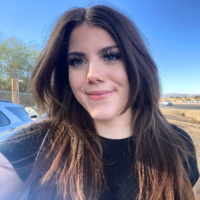
Abi Stradling is an advocate for mental health and healthy living practices, dedicated to promoting well-being in all aspects of life. Supporting individuals on their sober journey and offering guidance to loved ones as they navigate the role of a sober companion, Abi’s empathetic approach creates a safe and supportive environment within the community.
